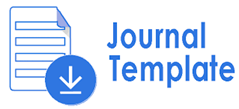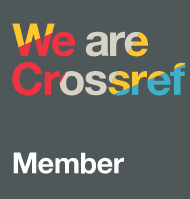A Transitivity Analysis of Putin’s ideological stance in the “Financial Times” Online Newspaper in 2019
Abstract
This study aims to unmask ideological stances of Vladimir Putin by using transitivity analysis. The dataset obtained from the transcription of Vladimir Putin Interview in the Financial Times newspaper in 2019. By adopting Transitivity analysis of Halliday and Matthiessen’s theory (2014) enable to uncover ideological stances of Putin based on lexicogrammar in the transitivity system of the process types. The findings show that the highest frequency of the Transitivity process used by Putin’s interview using the Material process , the Mental and the Verbal process. This process presents that Putin has inclined to present that his the real hard work president as the Material process as process of doing, then he used the Mental process to touch the reader’s heart to sympathy to him. While the Verbal process is used to say out in his interview, since the process of Saying is to display that Putin wants to show that he has an authority and has great power to influence the readers and the people of Russia. This is done by Putin to attract the readers to follow at least support his way to run his country.
Full Text:
PDFReferences
Andriyanti, E. (2019). Language Shift among Javanese Youth and Their Perception of Local and National Identities. Journal of Language Studie, Vol.19 (3). 2019. p.109-125
Cleveland, M., Laroche, M. & Papadopoulos, N. (2015). You Are What You Speak? Globalization, Multilingualism, Consumer Dispositions and Consumption. Journal of Business Research. 68(3), 542-552.
Halliday, M., and Matthiessen, C. M., & Matthiessen, C. (2014). An introduction to functional grammar. London: Routledge. ISBN: 9780203431269 (ebk)
Halliday, M. A. K. (1978). Language as Social Semiotic: The Social Interpretation of Language and Meaning. London: Edward Arnold. ISBN: 0713159677, 9780713159677
Halliday, M. A. K. (1985). An introduction to functional grammar. London: Edward Arnold. ISBN-13: 978 0 340 76167 0
Martin, J. R. (1992). English Text: System and structure. Amsterdam: John benjamins publishing company. ISBN : 90 272 2079 4 (Eur).
Mushtaq, Mishal, Saleem, Tahir Saleem, Afzal & Aisha Saleem (2020). A corpus-based ideational meta-functional analysis of Pakistan Prime Minister Imran Khan’s speech at United Nations general assembly. Cogent Social Sciences, 7:1, 1856999, DOI: 10.1080/23311886.2020.1856999
Naz, S., Alvi, S. D., & Baseer, A. (2012). Political Language of Benazir Bhutto: A Transitivity Analysis of Her Speech ‘Democratization in Pakistan.’. Interdisciplinary Journal of Contemporary Research in Business, 4(8), 125–141. https://journal-archieves26. webs.com/125-141.pdf
Ningsih and Megah (2021).An Analysis of Register of the Football Terms Used in online News of the BOLA Magazine. Journal Cahaya Pendidikan
Noor, S.N.F.M (2015). Empowering the powerful: a critical discourse analysis of public discourse on graduate employability. Sydney: Macquire University
Seixas, B. V., Smith, N., & Mitton, C. (2018). The qualitative descriptive approach in international comparative studies: using online qualitative surveys. International Journal of Health Policy and Management, 7(9), 778.
Sugiyono. (2017). Metode Penelitian Kuantitatif, Kualitatif, dan R&D. Bandung : Alfabeta. p.9 & 19.ISBN: 979-8433-64-0
Suwanti, I. (2015). Kekuasaan Vladimir Putin dalam perkembangan demokrasi federasi Rusia. Transformasi. Vol. 1 No. 28 , 2015
Van Dijk, T. A. (1998). Ideology A Multidisciplinary Approach. Trowbridge, Wiltshire: Sage Publications, Inc. ISBN: 0 7169 5655 7
DOI: https://doi.org/10.33373/chypend.v8i1.4074
Refbacks
- There are currently no refbacks.

This work is licensed under a Creative Commons Attribution-NonCommercial-ShareAlike 4.0 International License.
Copyright (c) 2018 Universitas Riau Kepulauan

Ciptaan disebarluaskan di bawah Lisensi Creative Commons Atribusi 4.0 Internasional.















